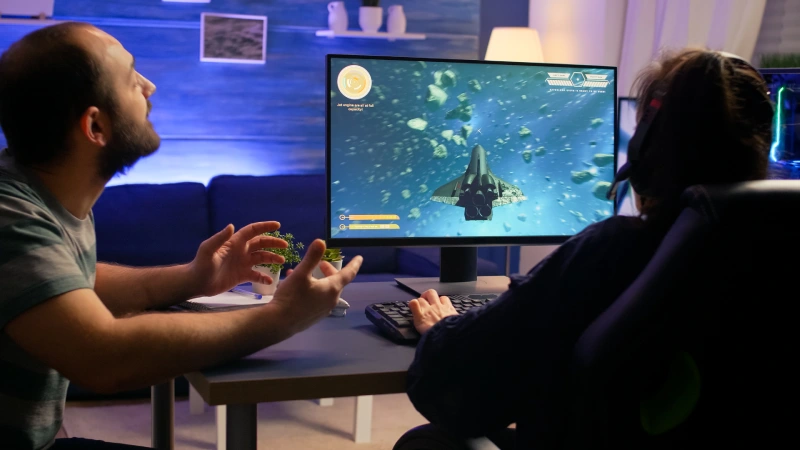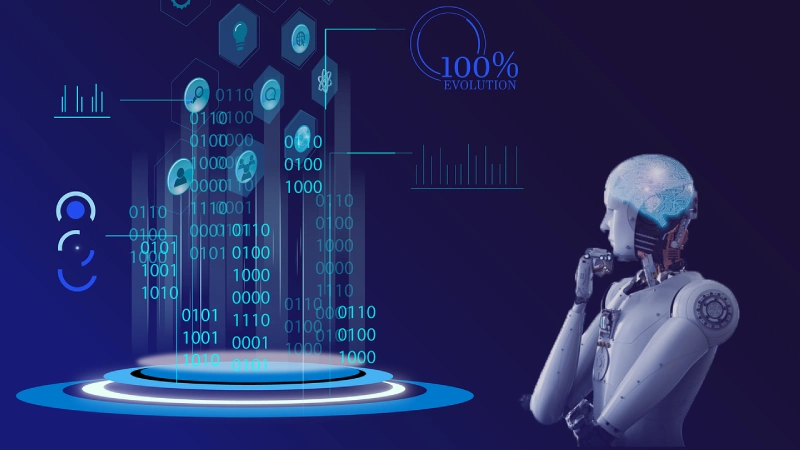Highlights
- Fan-made games use open-source AI models that open the door for creativity.
- Legal frameworks and copyright laws form a hurdle against such open-source games for their unauthorised use of data.
- Developers of such games need to account for safeguards like custom models, detailed documentation, and disclosure policies to navigate the murky legal terrain.
In the contemporary media world, the rise of large language models (LLMs) seems to bring forth a fresh set of possibilities in interacting with characters and narratives in popular media. Traditional media production has been dexterously slow in embracing generative AI (and rightly so), but the fan communities, on the other hand, have gotten down to serious business in implementing open-source models and interface frameworks, such as Ollama, to create novel applications, including chatbots and IP story world-based games.
It is that kind of synthesis process that is dear to the heart of media scholar Nicole Lamerichs, who then goes on to say how participatory culture in the age of AI is going to be a messy intertwinement of humans, nonhumans, businesses, data, and interfaces. The legal challenges presented to this exciting new landscape of AI-enabled fan games, upon which all such engineering is built, are predominantly copyright and whether or not AI-generated content is protectable.

An Interesting Case and an Even Stranger Thing
An instructive example of this new frontier is a fan-made Stranger Things text adventure game, created to explore the current capabilities of off-the-shelf AI tools. The game is created by scraping about 8,000 words from the Stranger Things Wiki, an unauthorised online encyclopedia created by fans, along with illegal scripts for character dialogue.
This text data is sorted into files corresponding to the key locations of Seasons 1 and 2, such as Hawkins Middle School and Mike’s neighbourhood. Players can explore these locations by typing commands like “East” or “West”, which is a nostalgic echo of the text adventure structure and so tight with the TV series in 1980s aesthetics.
LLMs running on a local server equipped with a powerful GPU that can generate text on demand in under a second power the game’s interactivity, but expensive hardware requirements put local usage for interactive games far beyond most people’s reach. The developer utilises various LLMs available through Ollama, ranging from smaller models like Llama to larger, more capable ones like DeepSeek R1 and Qwen 3, which can be swapped to test their performance within the fictional world.

LLMs are not only used for narrative generation but also for innovative game design elements. For instance, an LLM determines the outcome of battles against fan-created bosses like the ‘AquaGorgon’ by evaluating combat details, while a specialised creative writing model narrates the result. This clever approach allows the main game program to track win/loss variables while offering players a rich, descriptive experience.
A particularly “mind-bending” innovation is the LLM-generated in-game items; these objects are not hard-coded but are created by the AI as strings of text, which can then be fed into battle evaluation prompts, enabling the model to decide their usefulness in context. This blurs the line between game data and creative writing, opening up “infinite possibilities in terms of content and development workflow”. Telling the model it is playing the role of a Dungeons and Dragons game master also helps it understand its assignment better, aligning with Stranger Things’ 1980s tabletop role-playing theme.
To Copy or Not To Copy
Despite the creative potential, the legal implications of these AI-powered fan works are substantial. One of the major issues is the risk of copyright infringement due to the training data used by the AI models. A huge flood of data is extracted from the internet, irrespective of whether copyright has been claimed for those works, and AI training models are trained upon them, thereby denying the said proprietors the right to give or deny permission for use.

Class-action lawsuits have emerged where accusations against Microsoft, OpenAI, Stability AI, Midjourney, and DeviantArt for copyrighted material have been made. In the US, “fair use” has been a defence in some cases, such as Google’s successful case against Oracle, but no such doctrine exists in Europe. If an AI model, trained on copyrighted material, produces outputs that reflect or reconstruct existing works, its use in a game could lead to copyright infringement.
Game distribution platforms are already reacting to these legal ambiguities. Valve, the operator of Steam, has notably begun rejecting AI-made games due to concerns over insufficient rights to training data. Developers are informed that their games can only be published if they possess “all of the necessary rights” to the intellectual property used in the dataset that trained the AI to create assets. This position underscores the complexity and the unclear nature of legal ownership for AI-produced content.
AI models trained on copyrighted game assets, storylines, or elements, if they relayed that to them to be carried on into new mods, could be the equivalent of infringing upon developer rights in the game modding context. Moreover, the copyright protection of AI-generated content is acknowledged as another big challenge for game developers. Conversely, this very notion poses an entirely new set of serious concerns for developers of game content when it comes to copyright protection of AI-created content.

Case Studies of AI Copyright Cases
Generally, copyright law, at least in the United States and Europe, recognises copyright as automatically bestowed upon a natural person who brings into existence a literary or artistic work and rules out AI as an author. This point was enforced in Thaler v. Perlmutter when the U.S. Copyright Office rejected the plaintiff’s copyright application on the basis that the author was listed as a computer system.
For copyright protection to be given to a work, a “threshold of originality” must be met: it requires independent creation and that the work reflect some degree of human creativity, something unique enough that no one else would have produced an identical result.

The degree of human involvement is crucial. In Zarya of the Dawn, the U.S. Copyright Office granted copyright to all parts of a comic book except for the images generated by Midjourney, concluding that the AI tool functioned “too randomly and automatically, without sufficient creative input or intervention from a human author”. Even slight human edits to images generated by AI were considered insignificant and would not qualify for copyright protection. In contrast, in China, in the Li v. Liu case, the use of Stable Diffusion generated an image and was held copyrightable because the plaintiff showed that they “accurately direct[ed]” the AI.
Besides that, and due to the lack of human authorship, the current legal consensus in the U.S. and Europe has largely denied basic copyright protection to purely AI-generated works. Still, the Copyright Office in the United States expresses the view that, in some cases, registration might be possible when deciding whether the “output is a mechanical reproduction” of a work or embodies an author’s “original mental conception” expressed with the aid of an AI. Without greater human involvement, a developer who creates an AI-generated character may well find it difficult to stop others from appropriating it.
Working A Way Around
To address these arising legal uncertainties, game developers working with or thinking of working with AI may consider a few practical safeguards: unequivocal selection of those AI tools that allow full control by the user; due diligence in reading all the terms of use of AI tools, especially as to who owns the content; and, if possible, the use of custom AI models trained with proprietary or licensed material.

Developers should also extensively customise AI outputs, treating them as a starting point rather than final assets. Documenting human contributions, such as prompts, is essential to demonstrating authorship. Instituting regular checks on all AI-generated content for potential copyright infringements on existing copyrighted works is also advisable.
Internal policies on AI should be developed; disclosure of AI use should be required, for example, whenever submitting to Valve’s system.As Kristofer Erickson notes regarding the Stranger Things fan game, Lamerichs’ argument about the importance of studying AI’s impact on fan works holds, especially given traditional media’s hesitation in adopting AI.
The “blurring of the line between hard-coded game data and creative writing” that LLMs enable presents infinite possibilities, but also a whole new world of legal challenges. To foster the incentive to create with AI while protecting existing original works from infringement, copyright laws and regulations will eventually have to change. Until then, fan games leveraging open-source AI models will sit in a convoluted, undecided space where innovation challenges established legal frameworks.
